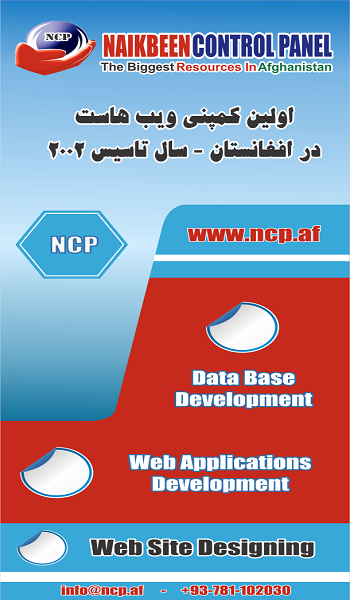CTG staff and support humanitarian projects in fragile and conflict-affected countries around the world, providing a rapid and cost-effective service for development and humanitarian missions. With past performance in 17 countries – from the Middle East, Africa, Europe, and Asia, we have placed more than 20,000 staff all over the world since operations began in 2006.
CTG recruits, deploys and manages the right people with the right skills to implement humanitarian and development projects, from cleaners to obstetricians, and mechanics to infection specialists, we’re skilled in emergency response to crises such as the Ebola outbreak in West Africa. Key to successful project delivery is the ability to mobilise at speed; CTG can source and deploy anyone, anywhere, in less than 2 weeks and have done so in 48 hours on a number of occasions.
Through our efficient and agile HR, logistical and operational services, CTG saves multilateral organisations time and money. We handle all our clients’ HR related issues, so they are free to focus on their core services.
Visit www.ctg.org to find out more
Overview of position
Treatment of severe acute malnutrition (SAM) is one of the key components of PND activities serviced through BPHS NGOS. It is primarily implemented in the emergency affected provinces where the prevalence of SAM is high. The services will be expanded as part of emergency response once there is emergency induced SAM cases. Therapeutic nutrition supplies (e.g F-75, F-100 and RUTF) are core elements of the services. PND manage the overall supply chain including forecasting, requesting, distributing, and collecting the reports on a quarterly basis.
Purpose of the post:
The main objective of this assignment is to support PND to manage quality IMAM services delivery as inpatient care and outpatient care. Also, to manage the therapeutic supply and minimize the nutrition supply stock outs through improved nutrition supply management system. The technical assistance will also be responsible for emergency related activities in PND including coordinating with Nutrition cluster.
Access to drinking water, sanitation and hygiene is among the fundamental and basic human rights. Unfortunately, Afghans still have a long way to go and get access to this right. As per the latest report of MICS 2022/2023, access to at least basic sanitation is still as low as 44.5% with huge disparities between rural and urban, 66.7% and 36.9% respectively. 19.8% people defecate in open (1% urban, 26.2% rural). Basic hygiene stands at 58.3% with disparities of urban and rural again (67.7% in urban and 55.1% in rural). Under 5 child mortality still stands at 55/1,000 live births. In order to get to the SDG target for sanitation and hygiene, which is “access to adequate and equitable sanitation and hygiene for all, and end open defecation, paying special attention to the needs of women and girls and those in vulnerable situation” and decrease the under 5 child mortality, we need upstream work (policy/strategies development, enabling environment…) and also implementation of services at various levels (communities and institutions). UNICEF has been providing support to the WASH sector to attain the SDGs for WASH by provision of WASH services, coordination, policy/strategy development and implementation of the WASH projects. UNICEF as one of the main technical and financial supporter for the WASH sector has remained the core supporter for MRRD, MoPH and MoE and has been backing up the technical units in the country and continuing its assistance under various circumstances. The extenders who have been supported by UNICEF, have gained several years of experience in coordinating and implementing different approaches in rural Afghanistan. Community Led Total Sanitation (CLTS); a tested approach in the country, has been scaled up with UNICEF support and is being implemented in different provinces successfully. UNICEF has also been supporting the HCHP to trigger the health staff to wash their hands at the critical times to avoid transmission of pathogens between patients and raise demand for WASH facilities. Provincial teams with support from Kabul based extenders (based at the technical departments of the de facto ministries) have been implementing the projects to contribute in overall WASH goal and attain the SDG # 6.2.
Role objectives
Minimum Qualification and Experience:
Experience in working with community and community mobilization
Familiarity with cultures of different Afghan communities
Very good interpersonal communication skills
Basic information regarding Afghanistan MoPH BPHS system
Ability to implement hygiene and sanitation programs at the community level
Must be computer literate and familiar with basic computer software including MS Office and internet use
Ability to supervise and manage a team
Must be able to communicate well in Pashto, Dari and English
The both male and female candidates must have the ability to frequently visit communities
Click on the link below and then click on ‘Register and Apply’ if you are not already registered with Tayo
Follow the steps to provide your details and register
Provide the information marked in red
Save your profile and upload copies of your qualification and CV
Once you profile is created and saved go to Vacancies tab on the right corner
Click on the vacancy that you want to apply for
Provide your current employment details, date you are available from and salary expectation
Tick the boxes and click submit
You will see your application under Application tab.
VAC - 11943 Health promotion officer
https://app.tayohr.io/jobs/detail/vac-11943-health-promotion-officer-10663

